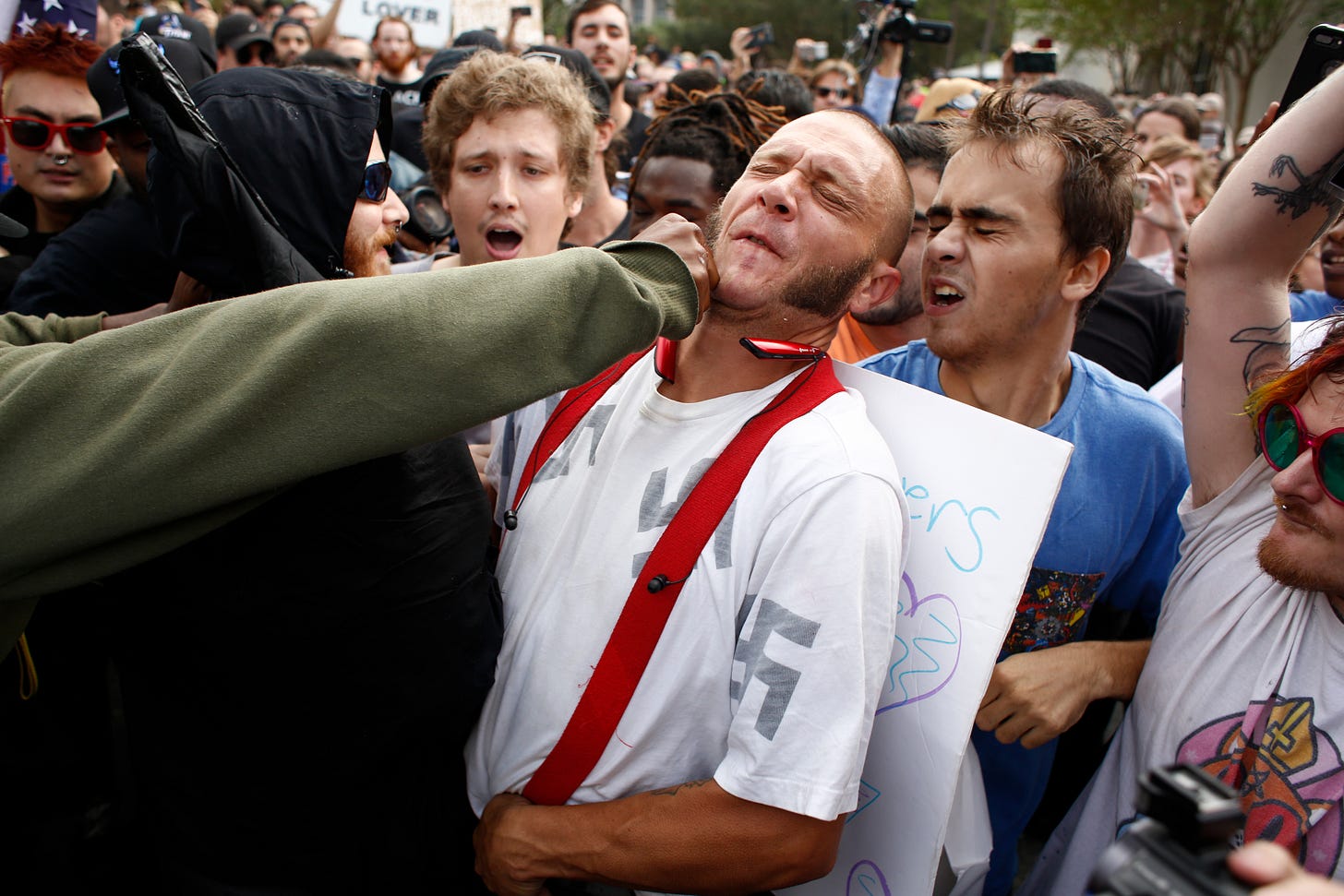Against assassinating Nazis
Who wins from political violence? The fascists

In the wake of Charlie Kirk’s murder, conservative efforts to crack down on opposition speech have largely taken two forms.
One is a vast nutpicking operation in which conservatives sift through obscure social media accounts, looking for anything that might support the false narrative that the assassination has been widely celebrated on the left.
This mode of propaganda exploits the public’s difficulty in understanding large numbers. In a country of 340 million people, if 0.1% of the public writes something stupid, immoral, and inflammatory, that is both an extremely small share of the population and also hundreds of thousands of individual bad posts. Add in various foreigners who like to tweet about American politics, to say nothing of bots and deliberate malefactors, and it’s easy to conjure up a menacing specter.
The second, more insidious effort claims that all speech characterizing the MAGA movement and/or its enthusiastic supporters as fascists or fascistic is a de facto effort to incite violence.
This is far more interesting than the first. It is genuinely true that a very large number of people — including prominent elected officials and writers, major donors, and other influential actors in left-of-center politics and culture — have made claims of this sort.
Complicating the conservative take on this, though, is the fact that the list of those who have drawn analogies between Donald Trump and Adolf Hitler includes the current vice president. The fact that the analogy came to him so readily in his Trump-skeptical days underscores how mainstream the take is.
But the fact of the matter is that profligate accusations of fascism are as American as apple pie.
From the Dead Kennedys’ “California Über Alles” to Jonah Goldberg’s 2009 bestseller “Liberal Fascism: The Secret History of the American Left, From Mussolini to the Politics of Meaning,” warnings of fascism are a staple of American political rhetoric and have been for generations. Trump himself accused Joe Biden of being “surrounded by fascists” in the White House this past spring. These charges vary in both analytical rigor and actual seriousness,1 but if they’re all an incitement to violence, the incitement is remarkably inefficacious.
The claim that you should never accuse a political rival of being a dangerous, ultranationalist authoritarian is also hard to make sense of. After all, what if a prominent politician is genuinely a dangerous authoritarian? This seems like something that people pointing out descriptive facts about the world should be able to say!
Reasonable people will, of course, disagree about who the dangerous authoritarians are, and that’s why we have free speech. I think Trump’s claim that the Biden White House was a gaggle of fascists was absurd, but if we could agree in advance which political arguments are true and which are false, we wouldn’t need politics at all.
But what I find most interesting is the premise, shared at times by some on the left, that if you are confident that you have correctly identified the fascists, you should use extrajudicial violence against them.



